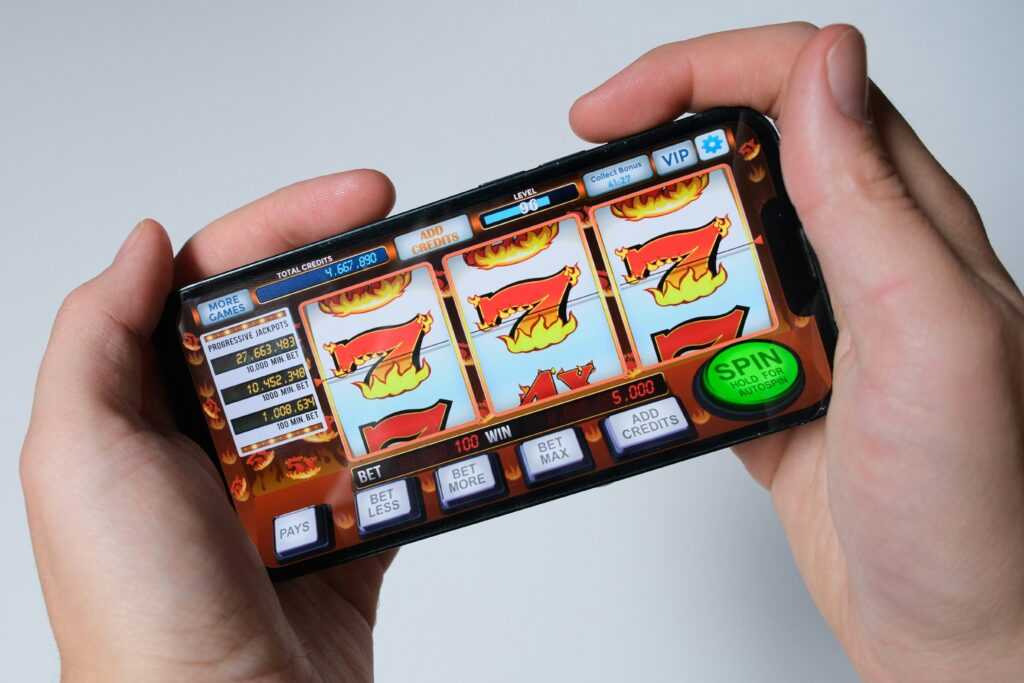The Evolution of Casino Gaming
Casino gaming has undergone significant transformations over the decades, driven by technological advances. The introduction of slot machines in the late 19th century marked the beginning of mechanized gambling. These early machines operated with levers and gears providing a new form of entertainment that quickly gained popularity.
By the mid-20th century, casinos had transitioned to more complex electronic machines and games. Microchips replaced mechanical components, introducing video poker and electronic roulette tables. These innovations enhanced gameplay variance and reliability, appealing to a wider audience.
In the 1990s, online casinos revolutionized the industry, making games accessible to anyone with an internet connection. Players could enjoy a variety of games from the comfort of their homes, leading to a surge in popularity and variety except for restrictions in certain regions. This development pushed traditional casinos to adopt new technologies and create hybrid gaming environments.
Virtual reality is the latest milestone in casino gaming evolution. VR technology immerses players in realistic casino environments, fostering an engaging and interactive experience while eliminating geographical barriers. This advancement not only attracts tech-savvy players but also expands the player’s scope by providing a blend of traditional gaming excitement with modern virtual elements.
Introduction to Virtual Reality in Casinos
Virtual reality in casinos represents a groundbreaking shift in how players engage with their favorite games. By recreating the sights and sounds of a real casino, VR technology allows players to immerse themselves in an experience that mimics the thrill of being on the casino floor. With VR, casino websites move beyond static interfaces to provide interactive environments where users can walk through virtual gaming halls, sit at tables, and even communicate with other virtual players.
With virtual casinos, the possibilities extend far beyond traditional gameplay. Players can enjoy customized gaming interfaces, offering personalized game settings and themes. Social interaction is also enhanced, with opportunities for players to connect and compete in virtual spaces as if they were physically present. This creates a sense of community, appealing to those who value the social aspects of casino gaming.
The technological advances facilitating these innovations continue to evolve rapidly, supported by improvements in VR hardware and software. As VR headsets become more affordable and accessible, the adoption of virtual reality in casinos is growing. This attracts a broader audience, including those who might not typically visit land-based casinos but seek the excitement of a realistic gaming experience from the comfort of their own homes.
Benefits of Virtual Reality for Players

Virtual reality in casinos offers a transformative experience for players. It seamlessly merges immersive technology with traditional gaming fun.
Immersive Gaming Environment
VR transports players into realistic, 3D casino settings. I feel like I’m wandering through a luxurious Las Vegas casino, complete with ambient sounds and vibrant visuals. Advanced graphics provide detailed environments, from poker tables to slot machines, enhancing player engagement.
Enhanced Interactivity
Interactivity in VR casinos surpasses that of traditional platforms. I can physically interact with game elements, mimicking real-world actions like card shuffling or dice rolling. This heightened interaction makes gameplay more engaging and intuitive, further blurring the line between virtual and reality.
Social Engagement
Social interaction thrives in VR environments. I chat with fellow players, forming a sense of camaraderie similar to what I’d experience in physical casinos. This interaction expands the social aspect of gaming, making virtual casinos dynamic social spaces.
With these features, VR significantly elevates the player experience by offering a more:
- dynamic
- interactive
- social gaming environment
Impact on Casino Operators
Virtual reality (VR) is altering how casino operators manage and optimize their resources. As VR technology becomes an integral part of the gaming landscape, casino operators are discovering new ways to enhance efficiency and foster customer engagement.
Cost Efficiency
VR reduces the need for physical infrastructure, which can lead to significant cost savings. Operators can offer an expansive range of games without needing to invest in additional floor space. Maintenance costs are lower too since digital environments don’t require physical upkeep. Additionally, the scalability of VR platforms facilitates rapid expansion into new markets without the expenses associated with traditional brick-and-mortar casinos.
Increased Customer Engagement
Engagement levels rise as VR introduces more interactive and immersive experiences for players. Casino operators can personalize gaming sessions, tailoring experiences to individual preferences. This tailored experience holds players’ attention longer and encourages repeated visits, which boosts revenue. VR environments also promote social interaction among players, creating community-like networks that encourage loyalty and draw in new customers. By using VR, operators can connect with a tech-savvy audience seeking modern gaming experiences that traditional casinos might not be able to offer.
Popular VR Casino Games
Virtual reality has transformed casino gaming by introducing immersive and interactive experiences. I’ve seen several VR casino games gain popularity due to their engaging features and realistic environments.
- VR Poker: Poker remains a classic favorite, but in VR, players sit at virtual tables, observe facial expressions, and engage with opponents as if seated in a brick-and-mortar casino. This adds a layer of realism and strategy to the game.
- Blackjack VR: A staple in any casino, blackjack becomes more interactive in VR. Players experience the thrill of handling cards and chips while interacting with other players and a virtual dealer, creating a more dynamic gaming session.
- VR Roulette: Spinning the wheel in a VR setting offers unparalleled excitement. Players witness the ball’s movement in a 3D space and feel the anticipation as it lands. VR enhances the atmospheric sounds and visuals, immersing players in the suspenseful experience.
- Slots VR: Often regarded as the most iconic casino game, slots in VR offer vivid graphics and themed settings. Players pull levers, watch reels spin, and enjoy animated effects, making the routine action more engaging.
- VR Baccarat: This game gains a new dimension in VR environments. The ability to experience subtle nuances, like card flutters and table textures, enhances the authenticity. Players enjoy an immersive presence akin to traditional setups.
By offering these popular VR games, casinos create versatile, heightened experiences for users, encouraging them to explore and engage with familiar games from a fresh perspective.
Future Trends in VR Casino Technology
Emerging trends in VR technology are set to further transform the casino experience. Increasingly realistic graphics and soundscapes are on the horizon as developers push the boundaries of immersive gaming. AI integration with VR platforms will personalize the gaming experience more deeply by adapting casino environments and challenges to suit individual player preferences.
Multiplayer VR environments are expected to expand the social aspect of online gaming. Players could soon share virtual lounges, engage in real-time discussions, and participate in collaborative gameplay. Such interactions will mimic the social dynamics found in physical casinos.
Advancements in VR hardware will make devices more accessible. Lighter, more comfortable headsets and cost-effective solutions will attract broader audiences to VR casinos. Devices like standalone VR headsets with better performance and affordability will likely drive increased adoption among casual gamers.
Blockchain technology might begin to integrate into VR casino payments, offering secure, fast transactions. Cryptocurrencies could provide anonymity and security, factors valued by many in the digital age. This integration would enhance user trust and broaden payment options for players worldwide.
E-Sports tournaments conducted within VR settings will bring competitive gaming to a new level. Gamers will benefit from lifelike stages and audiences, elevating e-sports to an unprecedented immersive experience. This trend could attract sponsors and fans eager for innovative engagement opportunities.
Overall, these trends suggest an exciting future for VR casinos. As technology advances, the virtual experiences offered by casinos will become richer, more interactive, and increasingly realistic.



 Bessie Christmannero
Founder
Bessie Christmannero is the pioneering founder of Prime Gambling Way, a platform designed to revolutionize the gambling experience. With over a decade of experience in the gambling industry, Bessie has been at the forefront of delivering innovative strategies and expert betting advice. Her deep knowledge of industry trends, combined with a relentless drive to educate and empower bettors, has shaped Prime Gambling Way into a trusted authority. Bessie’s vision is rooted in the belief that informed decisions lead to successful outcomes, and she strives to make professional insights accessible to everyone, from seasoned gamblers to newcomers.
Bessie Christmannero
Founder
Bessie Christmannero is the pioneering founder of Prime Gambling Way, a platform designed to revolutionize the gambling experience. With over a decade of experience in the gambling industry, Bessie has been at the forefront of delivering innovative strategies and expert betting advice. Her deep knowledge of industry trends, combined with a relentless drive to educate and empower bettors, has shaped Prime Gambling Way into a trusted authority. Bessie’s vision is rooted in the belief that informed decisions lead to successful outcomes, and she strives to make professional insights accessible to everyone, from seasoned gamblers to newcomers.
